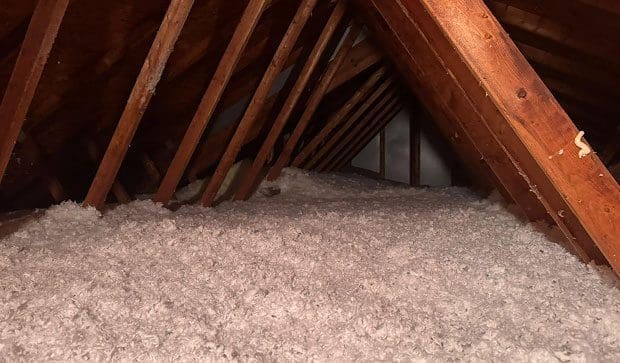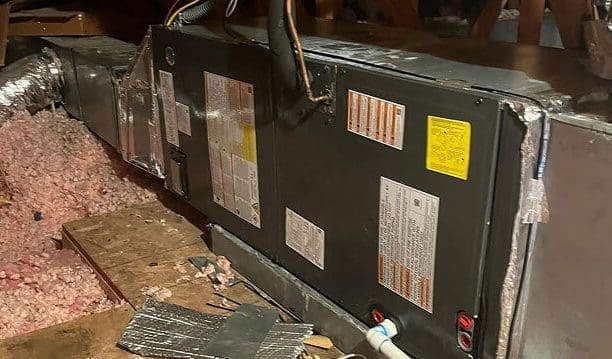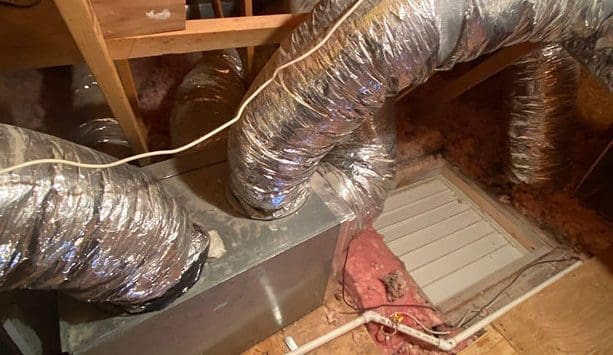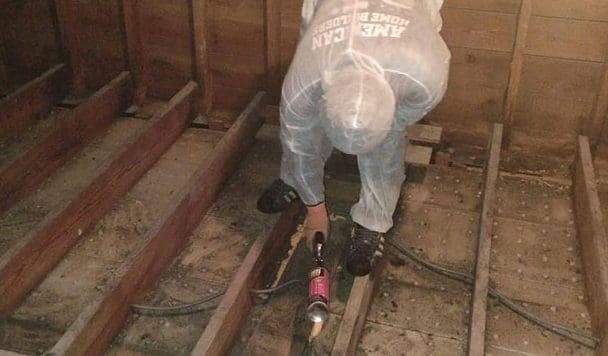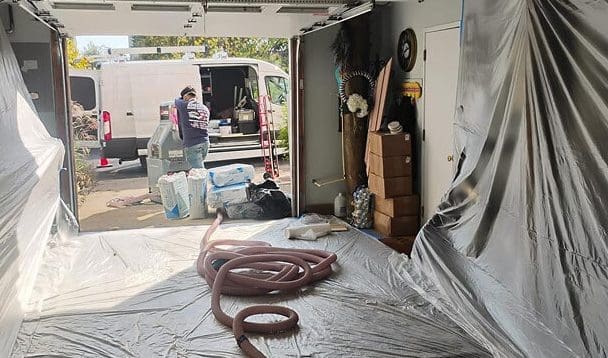
As summer approaches and temperatures rise in Baltimore, Maryland, maintaining healthy indoor air becomes increasingly important. Poor indoor air quality can lead to health issues, discomfort, and decreased energy efficiency. Creating a clean, breathable indoor environment before summer heat sets in ensures your family stays cool and healthy. Here’s how you can take control.
Get your HOME EVALUATION
Enter your information below

Understanding Indoor Air Quality
What Is Indoor Air Quality?
Indoor air quality (IAQ) refers to the health and cleanliness of the air within your home. It’s influenced by pollutants, ventilation, humidity, and filtration. Poor IAQ can cause or worsen asthma, allergies, and other respiratory conditions—especially dangerous for young children, seniors, and individuals with existing health issues.
Why It Matters in Warmer Months
As Baltimore residents turn up the A/C and keep windows shut during summer, indoor air can become stale and polluted. Moisture buildup, lack of ventilation, and increased airborne irritants make summer an especially important time to focus on IAQ improvements.
Common Indoor Pollutants to Watch For
Biological Pollutants
Mold, bacteria, pet dander, and dust mites thrive in warm, moist indoor environments. High humidity levels can lead to faster growth of these allergens, which may cause skin irritation, sneezing, or even chronic breathing issues if left unchecked.
Chemical Pollutants
Chemicals from cleaning products, paints, furniture, and personal care items emit volatile organic compounds (VOCs). Other hazards, like carbon monoxide from appliances or tobacco smoke, can seriously affect indoor air quality and overall health.

Top Ways to Improve Indoor Air Quality
Change Air Filters Regularly
Dirty air filters are one of the most common culprits of poor air quality. Replace HVAC filters every 1–3 months to ensure your system can properly trap dust, pollen, and allergens. High-efficiency filters provide the best performance.
Schedule HVAC Maintenance
An annual HVAC tune-up ensures optimal airflow, clean components, and efficient operation. Trained technicians can identify mold growth, blocked ducts, or malfunctioning components that compromise your indoor air quality.
Improve Ventilation
Stale air needs to move. Use exhaust fans in kitchens and bathrooms, open windows during cooler parts of the day, and consider energy recovery ventilators (ERVs) for whole-home solutions. Proper ventilation reduces both heat and indoor pollutants.
Use Air Purifiers
Standalone air purifiers with HEPA filters can capture particles like dust, smoke, and pet hair. They are especially beneficial for those with asthma or allergies and offer targeted air cleaning in bedrooms, nurseries, or high-traffic areas.
Manage Humidity Levels
Baltimore’s humid climate can invite mold and mildew indoors. Dehumidifiers, along with proper HVAC operation, help keep indoor humidity between 30–50%. This not only improves air quality but protects your home from moisture damage.
Daily Habits for Cleaner Air
Keep Your Home Clean
Vacuum carpets and upholstery regularly with a HEPA vacuum. Wipe down surfaces and wash bedding in hot water weekly. These small habits drastically reduce allergen and dust accumulation.
Avoid Indoor Smoking and Harsh Chemicals
Smoking indoors introduces thousands of harmful chemicals. Likewise, many cleaning agents and air fresheners release VOCs. Switch to natural cleaning products and always ensure rooms are well-ventilated during and after use.

Natural Methods to Improve Air Quality
Use Houseplants
Certain houseplants can help purify indoor air naturally. Spider plants, snake plants, and peace lilies are known for removing common toxins. They also add beauty and increase indoor oxygen levels—just avoid overwatering to control humidity.
Keep Windows Closed During High Pollen Days
While fresh air is great, it’s best to keep windows shut on days with high pollen counts. Use weather apps or local allergy forecasts to know when to seal up your home and rely on filtered airflow instead.
Long-Term Solutions
Upgrade HVAC Systems
Older HVAC systems may lack the energy efficiency or filtration modern units offer. Upgrading to a newer system improves airflow, saves energy, and boosts overall IAQ. Consider systems with built-in air purifiers for added benefit.
Consider Air Quality Monitoring Devices
Smart indoor air monitors can track humidity, VOC levels, and particulate matter in real-time. With alerts and app integration, they help you take immediate action when air quality drops and keep your home’s environment safe year-round.

Benefits of Improved Air Quality
Health Benefits
Better indoor air reduces allergy flare-ups, decreases asthma attacks, and improves sleep and cognitive performance. Children, seniors, and those with medical conditions benefit the most—but everyone breathes easier.
Home Comfort and Efficiency
Cleaner air means a more comfortable living space. Well-maintained systems work more efficiently, saving energy and money. You’ll enjoy a cooler home, fewer repairs, and peace of mind knowing your family is breathing healthier air.
Final Thoughts
Improving indoor air quality is one of the most effective ways to create a safe and comfortable home before the summer heat sets in. With small daily habits and smart upgrades, Baltimore homeowners can prepare their homes for a healthy and energy-efficient season. Ready to take the first step? Contact a local HVAC professional to assess your system and improve your home’s indoor air today.





